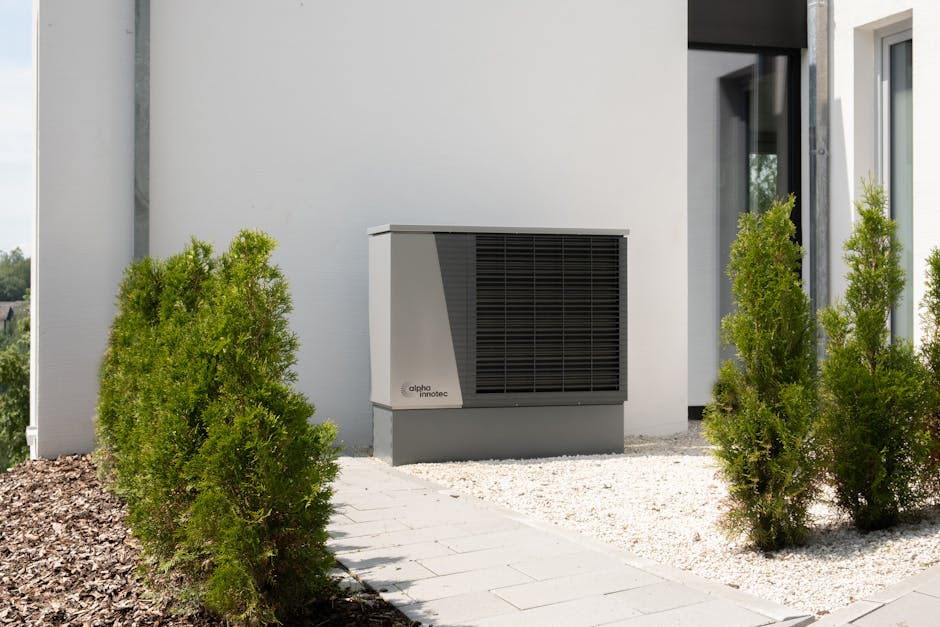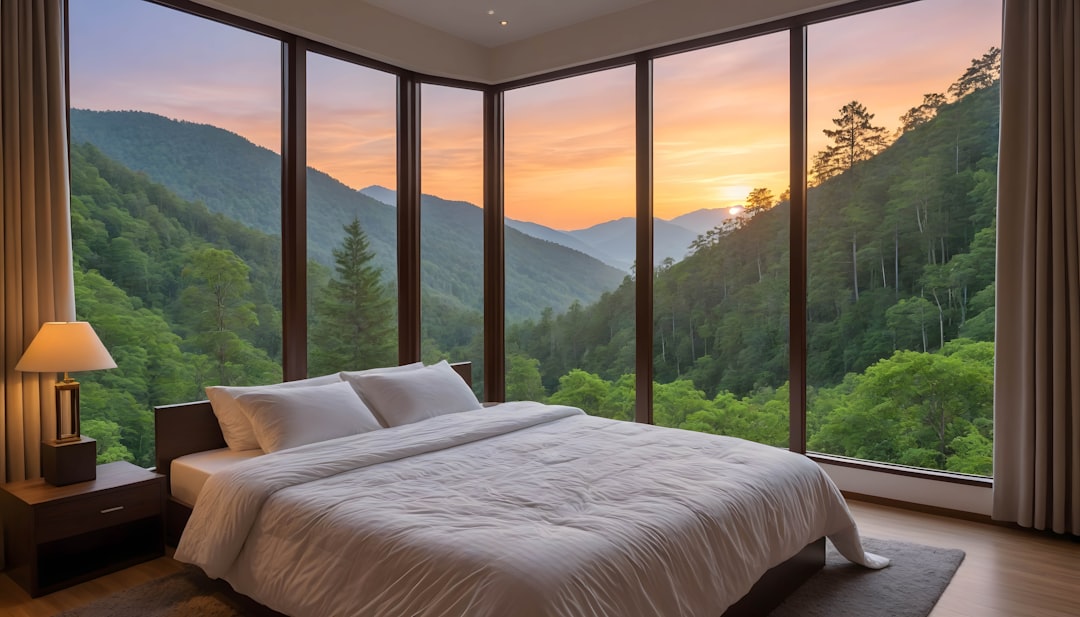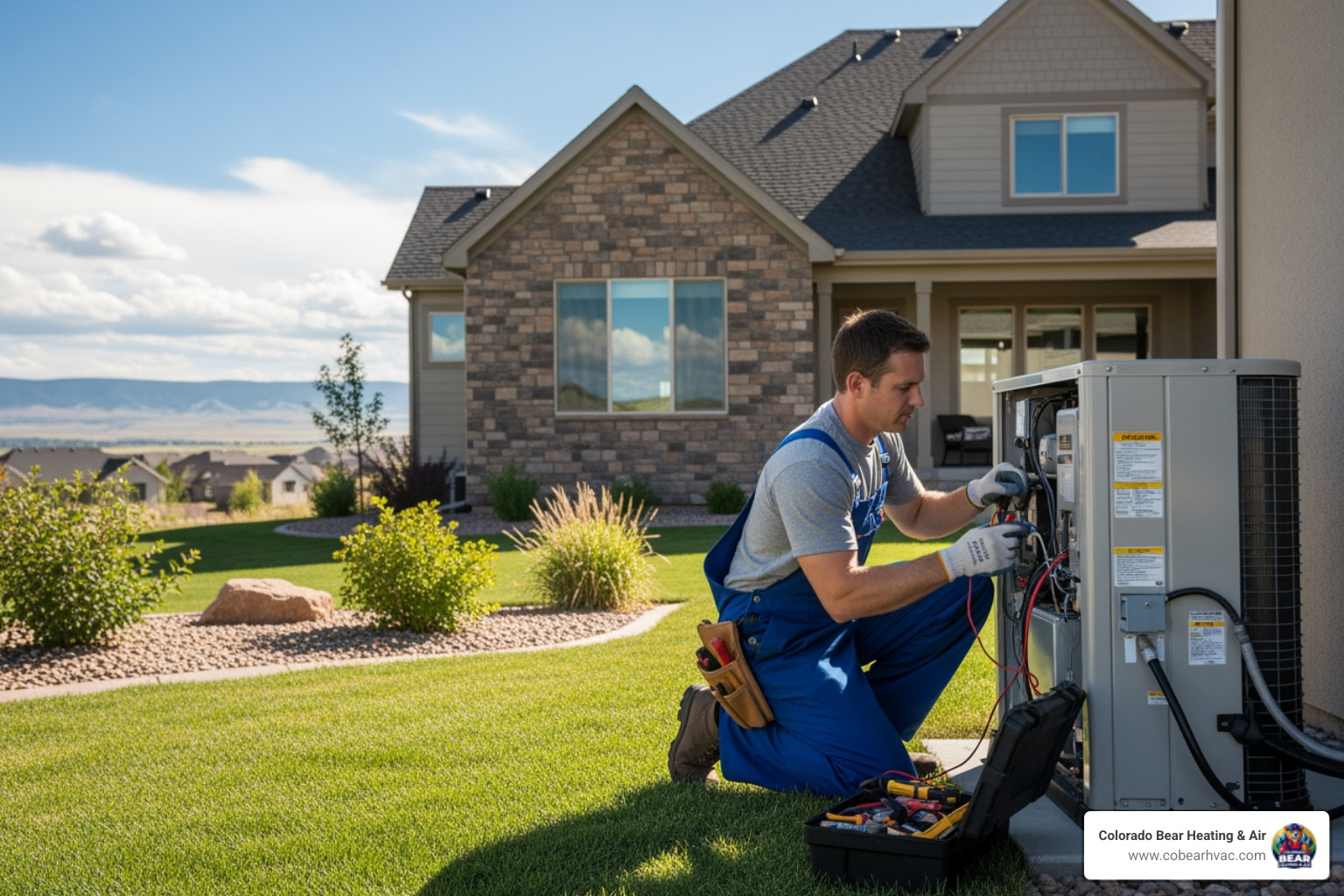
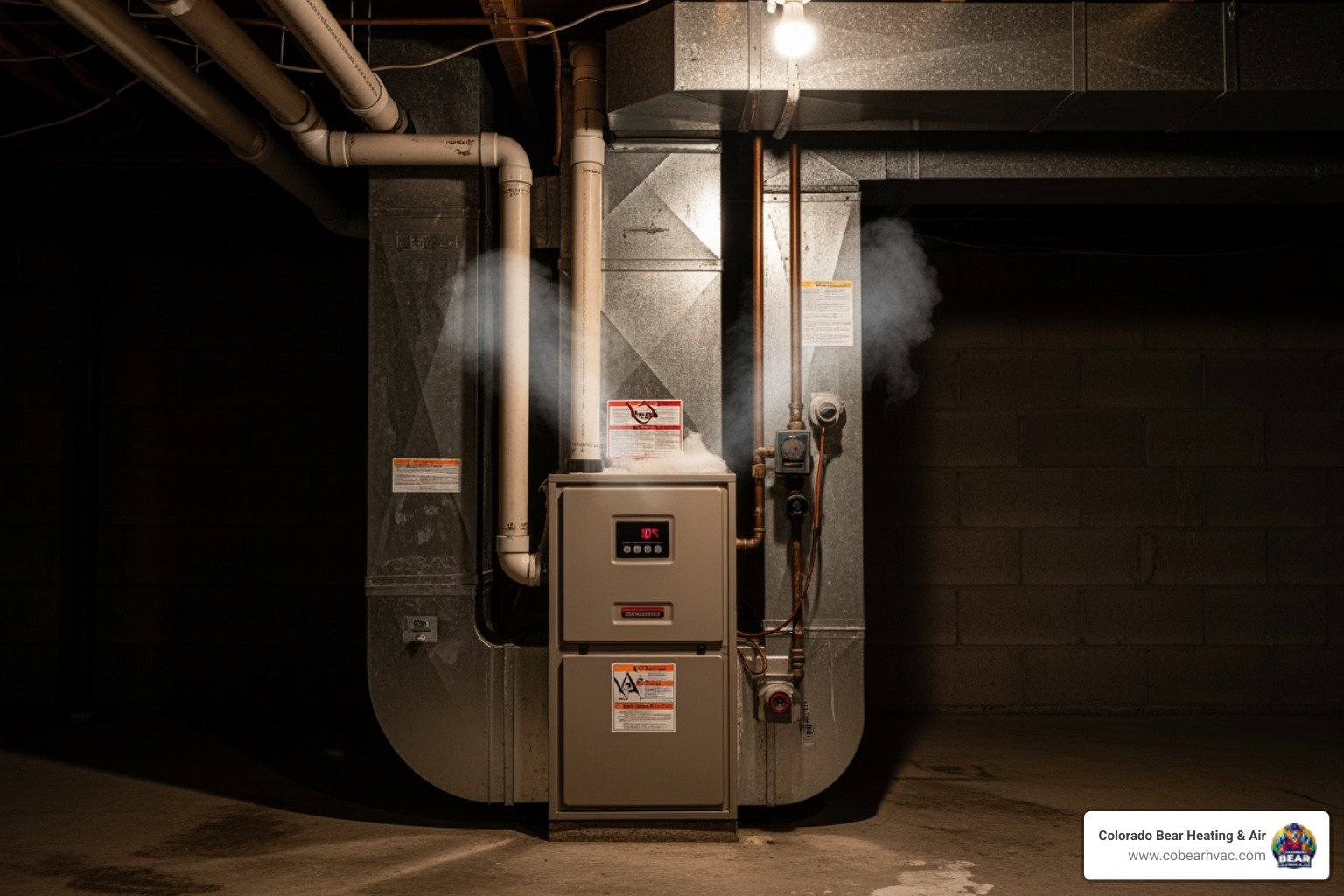

When Cold Air Replaces Warmth: Understanding Your Furnace Problem
Heating blowing cold air in aurora, co is incredibly frustrating, especially when temperatures plummet. If you're bundled up inside, wondering why your furnace quit on the coldest day, you're not alone. Aurora's unique climate—high altitude, dry air, and dramatic temperature swings—stresses heating systems, making cold-air issues common.
Quick diagnosis for a furnace blowing cold air:
- Check your thermostat – Ensure it's set to "Heat" mode (not "Fan" or "Cool")
- Inspect the air filter – A clogged filter restricts airflow and causes shutdowns
- Verify the pilot light – Gas furnaces won't heat without proper ignition
- Examine the circuit breaker – A tripped breaker stops the system completely
- Look for duct leaks – Warm air escaping before it reaches your rooms
- Check the condensate drain – A clog can trigger safety shutoffs
- Consider altitude effects – Aurora's elevation affects combustion and performance
When your furnace blows cold air, it's not just uncomfortable—it can signal safety issues like carbon monoxide risks or complete system failure. Understanding the cause helps you decide whether it's a DIY fix or requires professional help. For expert guidance, visit our comprehensive heating services page, and for fast, reliable repair, contact Colorado Bear Heating & Air for same-day service in Aurora.

Easy DIY Fixes: What to Check Before You Call
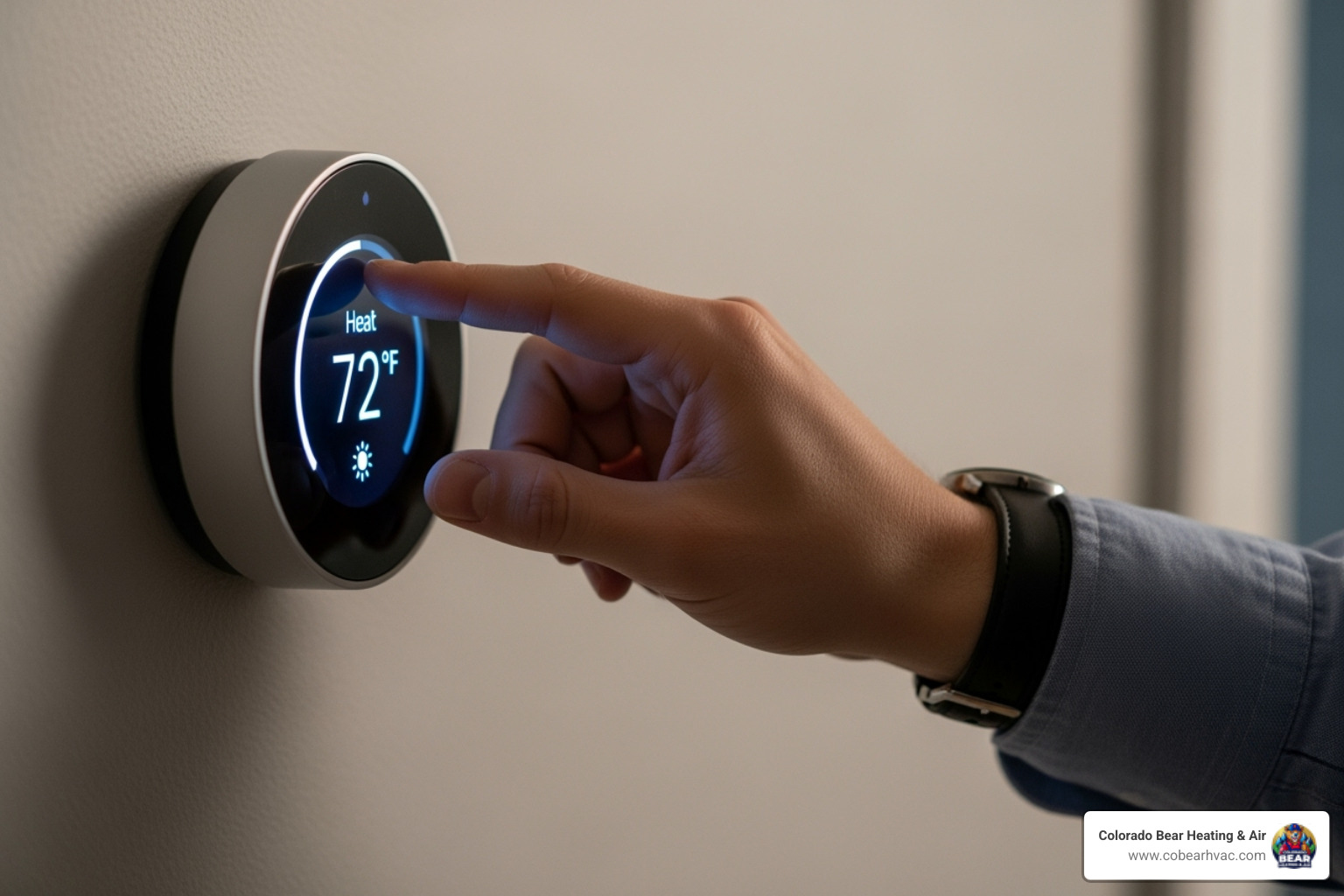
Before calling a professional, a few simple checks can often solve the problem of heating blowing cold air in aurora, co. Many homeowners can fix the issue in minutes, saving time and money. Here are some DIY steps to try first.
Simple DIY Checks Before You Call for heating blowing cold air in aurora, co
Start with your thermostat. Ensure it's set to "Heat" mode, not "Fan" or "Cool." The "Fan" setting circulates unheated air continuously. Also, confirm the temperature is set higher than the current room temperature. For programmable thermostats, check the schedule for errors. Finally, try replacing the batteries, as low power can cause erratic behavior.
Your air filter deserves attention next. In Aurora's dry climate, filters clog quickly. A clogged filter restricts airflow, causing the furnace to overheat and shut down (a process called "short cycling"). This results in cold air blowing between heating attempts. Check your filter monthly and replace it every one to three months. This simple task prevents many larger issues.
Walk over to your electrical panel and check the circuit breaker for your furnace. An electrical surge can trip the breaker, cutting power. Look for a breaker that's in the "off" or a middle position. Flip it fully to "off," then back to "on." If it trips again immediately, stop and call a professional, as this indicates a serious electrical problem.
Take a quick tour of your vents. Make sure all supply and return air vents are open and unblocked by furniture, rugs, or curtains. Blocked vents create pressure imbalances and force your furnace to work harder, leading to inefficient heating.
Keep these basic tools handy: a flashlight, a screwdriver set, extra furnace filters, fresh batteries for your thermostat, and a pen and paper to note your observations.
If these checks don't resolve the issue, it's time to dig deeper. For more guidance, explore our blog on common HVAC repair issues for solutions custom to Colorado homes.
Why is My Heating Blowing Cold Air in Aurora, CO? Common Culprits
If DIY fixes don't work, the issue with your heating blowing cold air in aurora, co is likely an internal component failure. Here are the common culprits we find.
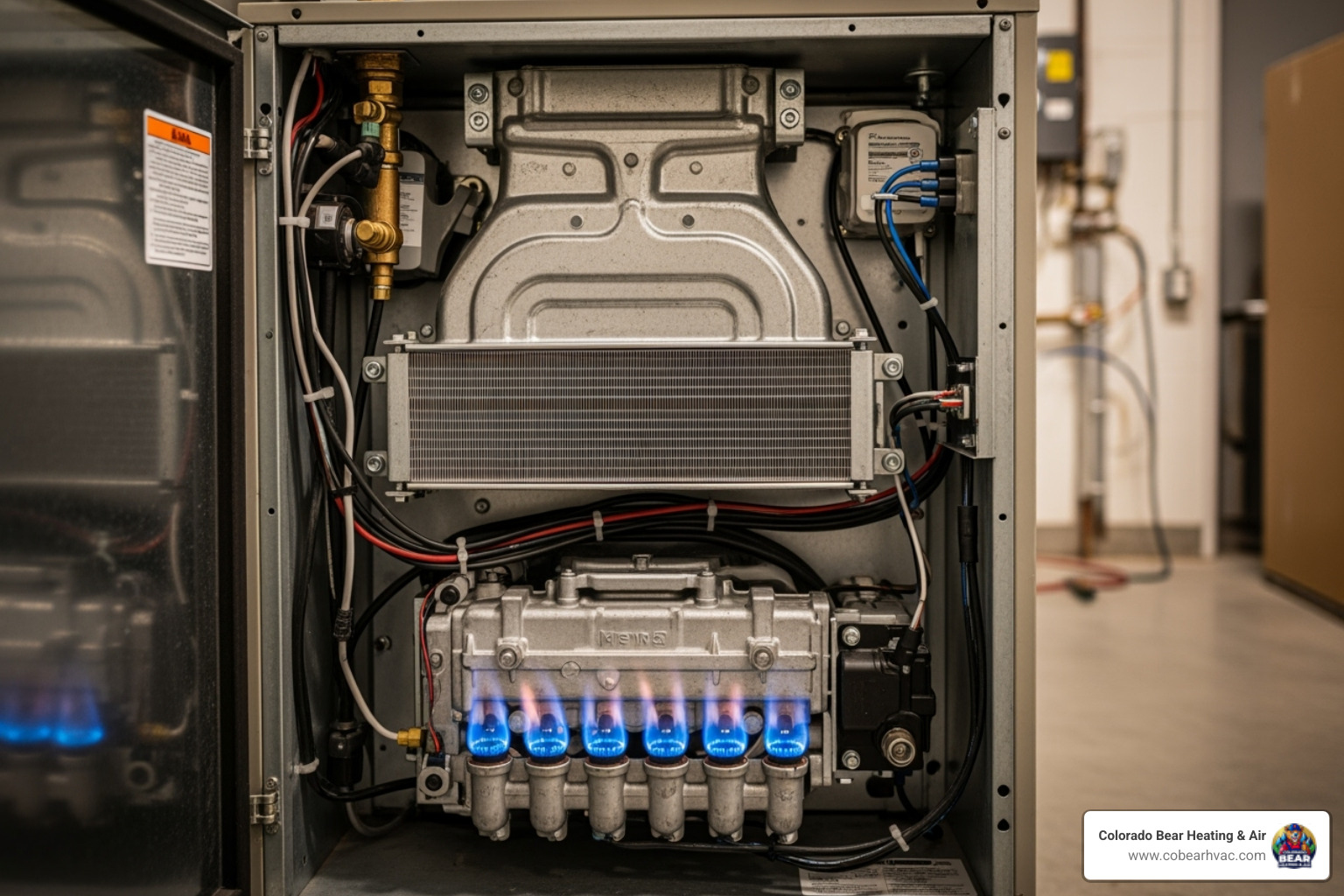
Ignition system failure is a top reason for furnaces blowing cold air. Modern furnaces use an electronic ignitor to light the burners. If it fails, the burners won't light, but the fan will still circulate unheated air. The ignitor can crack or wear out, especially with the frequent cycling common in Aurora's weather.
For older gas furnaces with a pilot light, a flame that has gone out will prevent heating. You can try relighting it using the instructions on the furnace, but if it won't stay lit, it indicates a deeper problem, like a faulty thermocouple. This requires professional diagnosis.
A clogged condensate drain line is a common issue in high-efficiency furnaces. These units produce water that must drain away. If the line clogs, a safety switch shuts down the furnace to prevent water damage, though the fan may continue to blow cold air.
Gas supply issues can also stop your furnace from creating heat. A gas valve may be accidentally off, or there could be a supply line problem. If you smell gas (a rotten egg odor), do not investigate. Turn off the gas at the meter, evacuate your home, and call your utility company immediately. Then call us for heating repair once the area is safe.
Leaky ductwork allows warm air to escape before reaching your rooms. This leads to cold spots and forces your system to work harder, wasting energy.
These issues involve gas lines and electrical components that require professional expertise. Our team at Colorado Bear Heating & Air handles these repairs safely and efficiently.
How Altitude in Aurora, CO Affects Furnace Performance
Living at a mile high means your furnace faces unique challenges. Aurora's elevation plays a big role in why heating blowing cold air in aurora, co can happen more frequently.
The main issue is lower air density. Less oxygen in the air affects the fuel-to-air mixture required for combustion. A furnace not adjusted for high altitude will run "rich" (too much gas, not enough oxygen), leading to incomplete combustion. This causes soot buildup, reduced efficiency, and dangerous carbon monoxide production.
Proper combustion tuning by a trained technician is essential for Aurora furnaces to ensure they burn cleanly, efficiently, and safely. A furnace not tuned for altitude can be a serious safety hazard.
System performance also suffers at altitude. The blower motor must work harder to move less-dense air, which can cause premature wear and reduce heating capacity.
This is why it's crucial to work with technicians who understand Aurora's environment. Our team provides HVAC service customized for Colorado's high-altitude conditions.
Furnace Type and Common Problems
The type of heating system in your home determines the likely problems.
Gas furnaces, the most common type in Aurora, can have issues with the gas valve, flame sensor, or a cracked heat exchanger. A cracked heat exchanger is a critical safety hazard as it can leak carbon monoxide and requires immediate furnace replacement.
Electric furnaces use heating coils to generate heat. If one or more coils fail, the furnace will blow air that isn't warm enough, and your electric bill may increase as the system struggles.
Heat pumps are an energy-efficient option for heating and cooling. They may blow cool air during their defrost cycle, which is normal. If you feel cold air, it could mean the backup heat isn't working or the unit is struggling in low temperatures. Other causes include a malfunctioning reversing valve or low refrigerant, which require professional heating repair.
When to Call a Professional HVAC Technician in Aurora
While DIY fixes are great, some situations require a professional. If your heating blowing cold air in aurora, co persists after basic checks, or if you notice any of the following warning signs, it's time to call for help to ensure your safety and comfort.
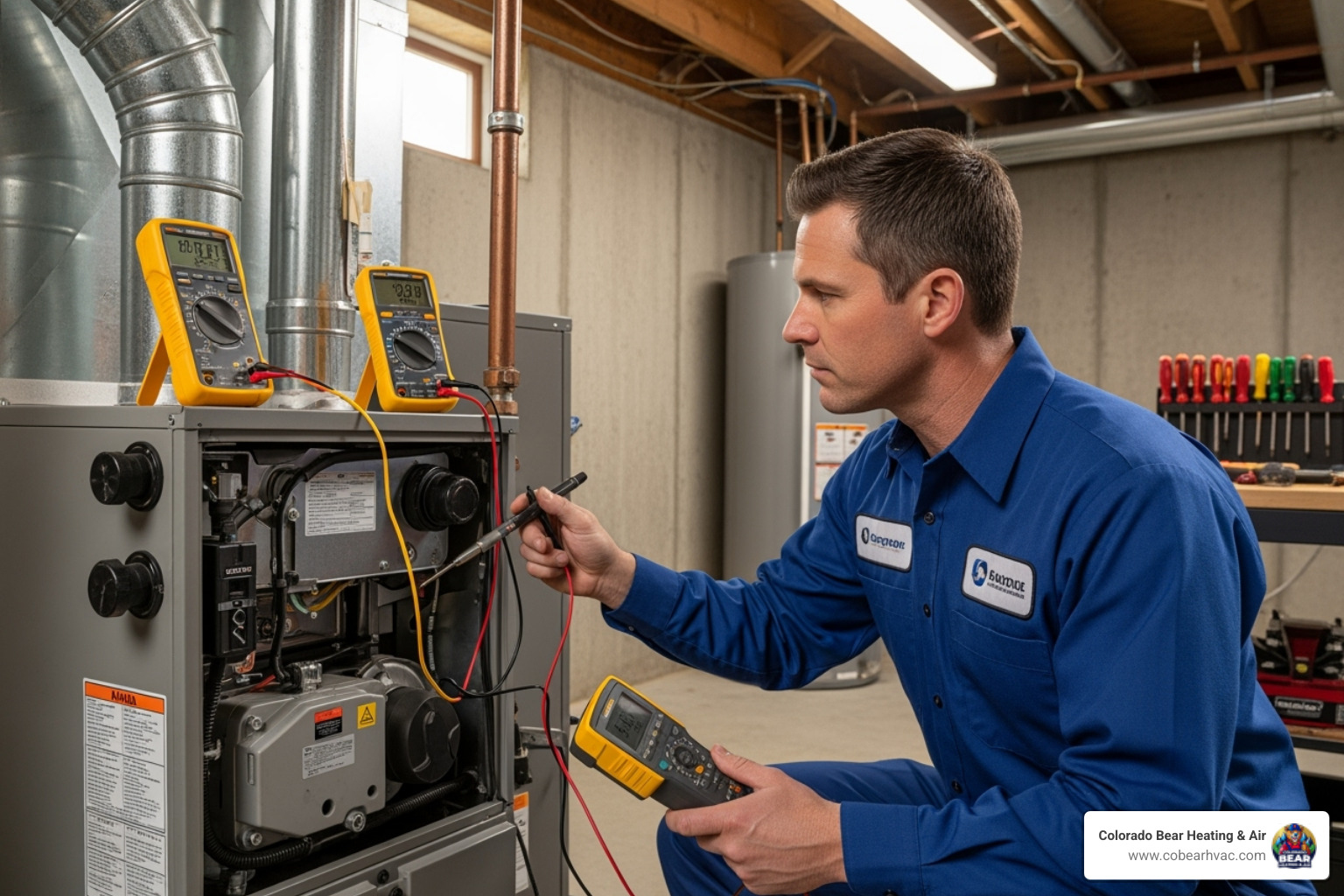
- If you smell gas (a rotten egg odor), act immediately. Evacuate the house, turn off the gas supply, and call your utility company, then call us. Gas leaks are extremely dangerous.
- Loud or unusual noises like grinding, banging, or squealing indicate a mechanical problem. Turn off the system to prevent further damage and call a professional.
- When DIY troubleshooting fails or the problem keeps returning, an underlying issue needs professional diagnosis.
- Carbon monoxide concerns require immediate action. If your CO detector alarms or anyone feels dizzy or nauseous, get fresh air immediately and seek medical help.
- Any electrical issues, sparks, or visible flames outside the burner area are serious hazards. Shut down your system and call us right away.
Choosing a qualified, local HVAC company that understands Aurora's climate is crucial. With over 20 years of experience, our NATE-certified technicians bring local expertise and a commitment to your safety.
Repair vs. Replace: Making the Right Call
Deciding whether to repair or replace a faulty furnace can be tough. Here are the key factors to consider, summarized in the table below.
- Furnace Age: Repair is often best for furnaces under 15 years old. If your system is older and has frequent issues, replacement is a smarter investment.
- Cost of Repair: A common guideline is the 50% rule. If a repair costs 50% or more than a new furnace, replacement is often more economical.
- Energy Efficiency: An old, inefficient furnace with a low AFUE rating increases energy bills. A new high-efficiency model can offer long-term savings.
- Frequent Breakdowns: If you're calling for repairs multiple times a season, the cumulative cost and inconvenience may justify a replacement.
- Safety Concerns: If an inspection reveals a cracked heat exchanger or other carbon monoxide risk, replacement is necessary for your family's safety.
We provide an honest assessment to help you choose between HVAC repair and replacement.
| Criteria | Repair | Replace |
|---|---|---|
| Furnace Age | Generally, if the furnace is less than 15 years old. (Furnaces can last 15-30 years, ACs 10-15 years). | If the furnace is 15+ years old and frequently breaking down. |
| Cost of Repair | Minor repairs (e.g., ignitor, capacitor) that are less than 50% of the cost of a new unit. | Major repairs (e.g., heat exchanger, compressor) costing 50% or more of a new unit. |
| Efficiency (AFUE) | Your furnace meets current efficiency standards and provides adequate heating. | Your furnace has a low AFUE rating (older models), leading to high energy bills. |
| Frequent Breakdowns | Isolated incident, not a recurring problem. | Multiple breakdowns each heating season, indicating chronic issues. |
| Comfort | Your home is generally comfortable when the furnace is working correctly. | Uneven heating, cold spots, or the furnace struggles to maintain desired temperatures. |
| Safety Concerns | No safety risks (e.g., carbon monoxide leaks) are present. | Presence of safety risks like a cracked heat exchanger, which cannot be reliably repaired. |
| Warranty | The furnace is still under warranty, covering the cost of parts or labor. | The warranty has expired, and repair costs are entirely out-of-pocket. |
Understanding Potential Repair Costs in Aurora
When your heating blowing cold air in aurora, co, repair costs are a major concern. While an exact quote requires a diagnosis, here are typical cost ranges for common furnace repairs.
- Diagnostic Fee: Most companies charge a fee to diagnose the problem, which is often applied toward the repair cost.
- Capacitor Replacement: $100 - $500. Capacitors help motors run, and their failure can affect airflow.
- Ignitor Replacement: $200 - $600. A failed ignitor is a common reason gas furnaces don't produce heat.
- Blower Motor Replacement: $400 - $1,500. This is a major repair, as the blower motor is what circulates air through your home.
- Thermocouple/Flame Sensor: $150 - $300. These are critical safety parts that ensure gas is burning correctly.
- Condensate Line/Pump Repair: $100 - $400. A clog here can shut down a high-efficiency furnace.
We believe in transparent pricing and offer financing options to make necessary repairs or replacements more manageable.
Preventative Maintenance: Your First Line of Defense
The best way to prevent your heating blowing cold air in aurora, co is with preventative maintenance. Like a car, your furnace needs regular service to run reliably, especially given Aurora's demanding climate.
Annual tune-ups are essential. Schedule a professional furnace inspection each fall. Our NATE-certified technicians perform a comprehensive service: cleaning burners, inspecting the heat exchanger for cracks (a critical CO safety check), lubricating moving parts, testing safety controls, and checking electrical connections. We also tune the combustion settings for Aurora's high altitude, ensuring safety and efficiency. A tune-up improves efficiency, extends your system's lifespan, and provides peace of mind.
Change your air filter regularly. This is the most important DIY task. We recommend changing your filter every one to three months (more often if you have pets or allergies). A clean filter prevents airflow restrictions that can lead to breakdowns.
Keep your outdoor unit clear. If you have a heat pump, ensure the outdoor unit is free of snow, ice, and debris to maintain proper airflow.
Test your carbon monoxide detectors monthly and replace the batteries annually. These detectors are your first line of defense against a malfunctioning furnace that could produce dangerous CO gas.
Investing in regular maintenance is the smartest decision a homeowner can make. Our HVAC Services and Maintenance Guide offers more tips for keeping your system in peak condition.
Get Your Heat Back with Aurora's Trusted Experts
Dealing with heating blowing cold air in aurora, co is a major frustration, especially with our climate's rapid temperature swings. We've covered the causes, from simple DIY fixes to complex internal failures, and highlighted the unique challenges of Aurora's high altitude.
While some problems are simple fixes, issues like gas supply problems, cracked heat exchangers, or failing motors require professional expertise. For safety concerns like gas odors or carbon monoxide risks, immediate professional help is crucial.
At Colorado Bear Heating & Air, we have over 20 years of experience keeping Aurora homes warm. Our NATE-certified technicians understand how local environmental factors affect your furnace. We provide honest assessments, transparent pricing, and solutions custom for high-altitude performance and safety.
We are your local HVAC experts serving Aurora, Castle Rock, Littleton, Centennial, and Highlands Ranch. We understand the urgency of a broken furnace on a cold night and offer prompt, reliable service.
Your family deserves a warm, safe home. Don't wait and wonder if your heat will come back on. Whether you need emergency heating repair or want to schedule preventative maintenance, we are here to help.
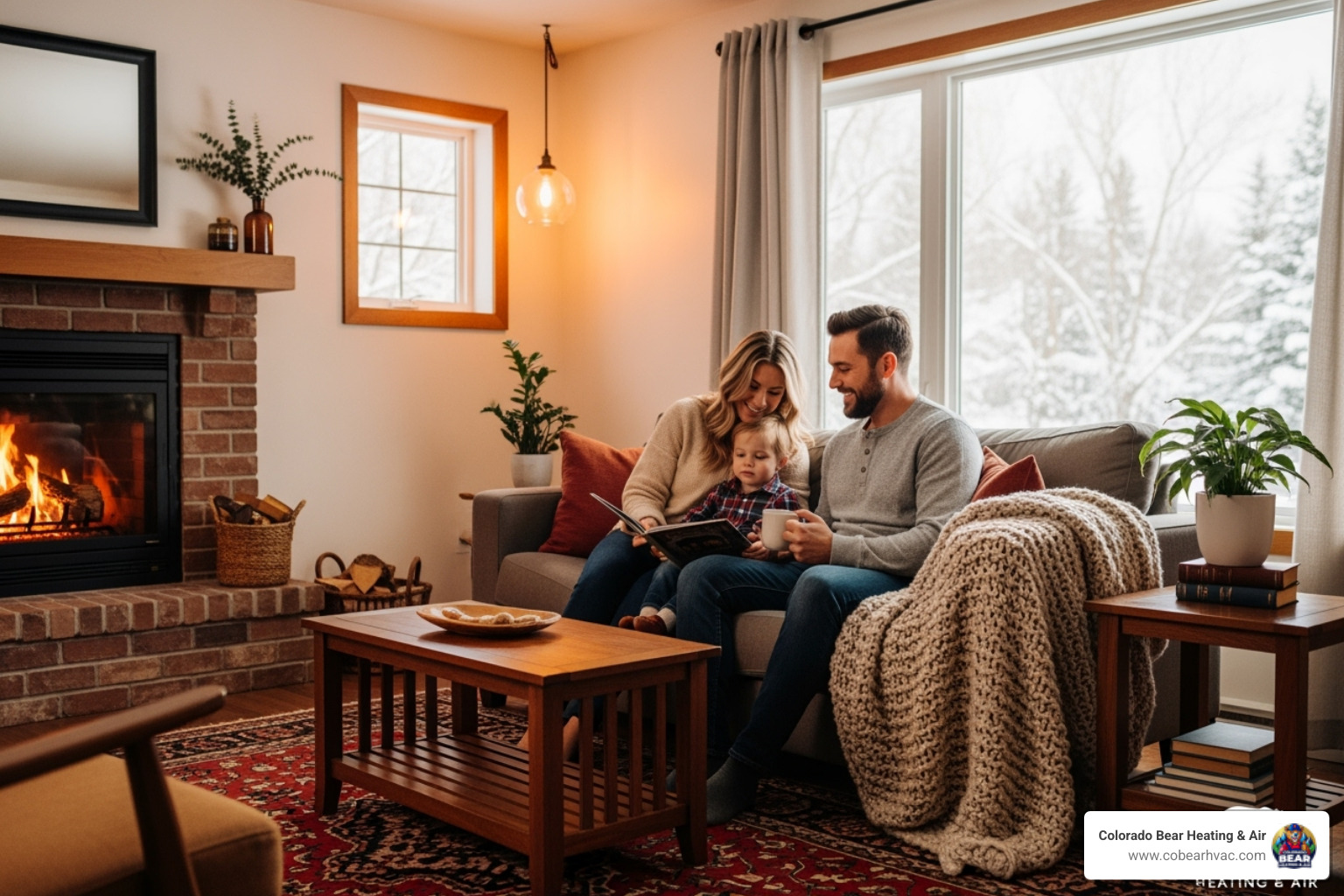
Ready to get your heat back? Contact us today for reliable heating services in Aurora and let's restore the comfort your home deserves.
Latest blogs

Apply now for flexible payment options
Get a decision in seconds with no impact to your credit score.



Testimonials
Service Areas
If you’re in Colorado Springs, The Mountains, or nearby areas, call us to confirm availability for installations.
.avif)















.avif)
.avif)
.avif)


